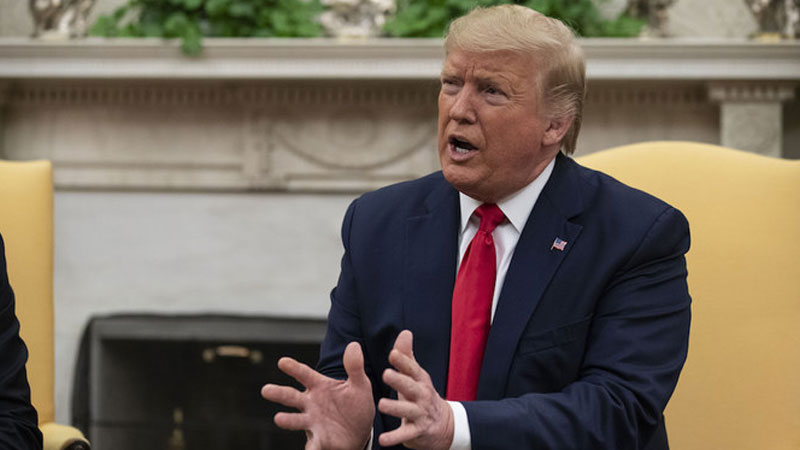 Iranian forces fired missiles at military bases housing US troops in Iraq on Wednesday in retaliation for the US killing of an Iranian general, raising the stakes in its conflict with Washington amid concern of a wider war in the Middle East.
Iranian forces fired missiles at military bases housing US troops in Iraq on Wednesday in retaliation for the US killing of an Iranian general, raising the stakes in its conflict with Washington amid concern of a wider war in the Middle East.
Iranian state television said Iran had fired 15 ballistic missiles from its territory at US targets in its neighbour Iraq early on Wednesday. The Pentagon said al-Asad air base and another facility in Erbil were targeted. Iranian state television said 80 ‘American terrorists’ had been killed and US helicopters and military equipment damaged. It did not say how it obtained that information.
Germany, Denmark, Norway and Poland said none of their troops in Iraq were hurt. Britain, which also has personnel in Iraq, condemned the Iranian action and said Tehran ‘should not repeat these reckless and dangerous attacks’. Iraq said its forces did not suffer casualties. The UN mission in Iraq called for restraint, saying, “Iraq should not pay the price for external rivalries.”
Iran’s Supreme Leader Ayatollah Ali Khamenei, addressing a gathering of Iranians chanting ‘Death to America’, said the attacks were a ‘slap on the face’ of the United States and said US troops should leave the region. Tehran’s foreign minister said Iran took ‘proportionate measures’ in self-defense and did not seek to escalate the confrontation.
Iraq’s prime minister’s office said on Wednesday it had received ‘an official verbal message’ from Iran informing it that a missile attack on US forces stationed on Iraqi soil was imminent. “We received an official verbal message from the Islamic Republic of Iran that the Iranian response to the assassination of Qasem Soleimani had begun or would begin shortly, and that the strike would be limited to where the US military was located in Iraq without specifying the locations,” it said.
US President Donald Trump, while delivering a televised address on Wednesday in response to Iran’s missile attacks, announced more ‘punishing’ economic sanctions even as he extended an olive branch to the ‘people and leaders’ of Iran to work together for ‘shared priorities’. Trump defended the targeted killing of Gen Soleimani and said the Americans should be extremely grateful and happy with the outcome. He announced that the US ‘will immediately impose additional punishing economic sanctions on the Iranian regime’ in response to what he called ‘Iranian aggression’.
Experts have viewed Iran’s move as a measured response, saying that it has deliberately avoided US military casualties to prevent the crisis from escalating out of control while still signalling Iranian resolve.
Trump confirmed no Americans were harmed in the Iranian attacks and suggested Washington may not carry out immediate retaliation. “The fact that we have this great military and equipment, however, does not mean we have to use it. We do not want to use it. American strength, both military and economic, is the best deterrent,” he said.
The US president acknowledged Iran ‘appears to be standing down’ at the moment ‘which is a good thing for all parties concerned and a very good thing for the world’. The much-awaited address, which began almost half an hour after its scheduled time, began with Trump saying, “As long as I am president, Iran will not be allowed to hold nuclear weapons.” At the end of the almost nine-minute-long speech, Trump signalled to Iran that the US will be willing to work with it toward a ‘better future’. “To the people and leaders of Iran, we want you to have a future and a great future, one that you deserve,” Trump said. “One of prosperity at home and harmony with the nations of the world.”